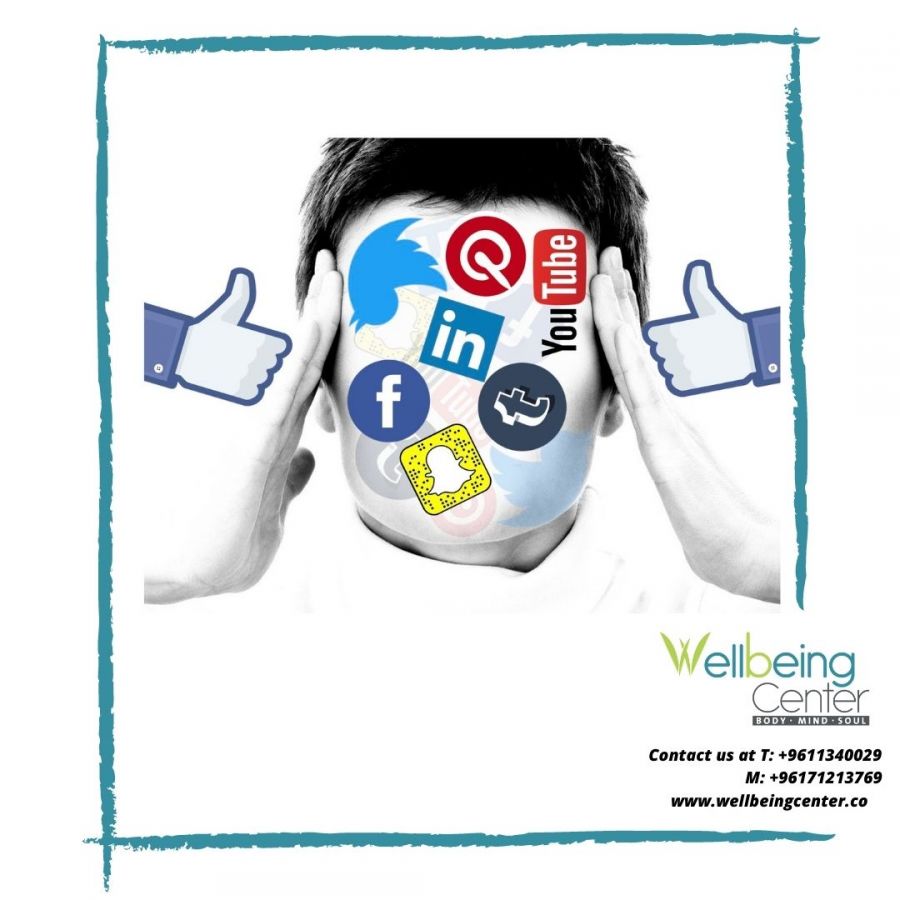Social Media

Undoubtedly, there are numerous benefits to using social media. Many old and new platforms became the primary means to stay current with accurate news and health information, connect to loved ones, participate in viral challenges, and stay on top of celebrity gossip.
But despite the positive benefits of social media, evidence has shown that there can be harmful consequences of over-use. There are specific issues relevant to the pandemic and social media that can have a negative impact on our mental health. Here are a few that we have noted:
1. Overall increased use of screens
As we spend more time at home, our overall use of technology has increased. This includes tablets, phones, televisions, and computer monitors. All of this screen time greatly increases our overall exposure to a type of light referred to as blue light. This excess blue light interferes with melatonin metabolism and can lead to poor sleep and irritability, which impacts our mental health.
2. Stress reactions due to pandemic-related information overload
Reports of death, illness, grief, unemployment, loss of businesses, food insecurity, evictions, and homelessness are constant reminders of the pandemic-related devastation that currently grips our nation. The repeated sharing of disturbing news can negatively impact the mental health of those social media users who are overexposed to this tragic material. Feelings of anxiety, depression, increased irritability, and excessive worry are likely consequences of being exposed (or overexposed) to this information.
3. COVID-19 misinformation and its impact on mental health
From conspiracy theories to false information about cures, there is an abundance of misinformation spread on social media platforms about the novel coronavirus. Overexposure to inaccurate and false information can be confusing and overwhelming, ultimately leading to increased anxiety, mistrust, stress, and depression.
Social media was certainly not designed to negatively impact our mental health, but as with all things, there is often both good and bad. To preserve your energy, it's recommended that you regularly unplug and focus your time and energy on the people and things around you that are of importance to you. To maintain mental wellness during this pandemic, take care to exercise proper awareness for yourself and your family when engaging in the use of social media platforms.
Here are some important social media usage tips to optimize your mental wellness during this world health crisis:
Take an occasional social media “holiday”: If the intensity of social media is getting to you, delete your apps for a pre-specified period of time to “turn down the heat” generated on social media. This will help you recenter and calm down and use your energies for what matter most.
Set boundaries regarding the amount of time that you spend on non-purposeful social media usage: With more time being spent at home, there is more downtime in which to engage in social media surfing. Make sure that while you’re on social media, you’re focused on aspects that truly matter to you. Allow yourself the opportunity to be intentional and thoughtful as you set your online priorities.
Use other methods of communication: So many times, we default to using social media to connect with our peers because it’s easy and convenient. Use this time to rediscover other forms of communication. Send a card in the mail, or pick up the phone and give your loved one a call. This will give you the personal connection that you crave and will keep you from scrolling through your feed.
Turn your notification settings off: Out of sight, out of mind? We think so. Turning off notifications from your phones and tablets will cut down on the number of times you are distracted from real-world interactions and will hopefully limit the amount of time that you spend on them.
Be a responsible user: Seek out and share accurate pandemic-related and political information from credible sources. Many social media platforms struggle to appropriately monitor all content that is posted. Flagging potential misinformation can help stop its spread.
